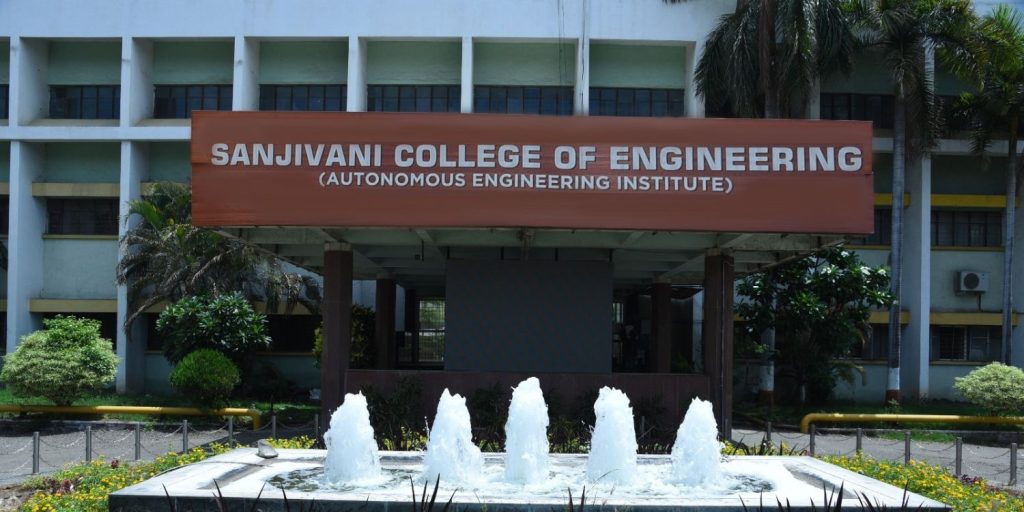India is home to thousands of engineering colleges, collectively producing millions of engineering graduates each year. Yet, despite this scale, a troubling reality persists, a significant proportion of these graduates remain unemployable, lacking the practical skills, critical thinking, and industry-readiness required in today’s dynamic job market. This disconnect between education and employability has cast a spotlight on the urgent need for systemic reform in engineering education, one that aligns with the progressive vision of the National Education Policy (NEP) 2020.
The NEP emphasizes competency-based learning, interdisciplinary approaches, and stronger industry-academia linkages, calling for institutions to go beyond traditional pedagogy and instill real-world problem-solving capabilities. This is precisely where institutes like Sanjivani College of Engineering step in.
Established in 1983, Sanjivani has emerged as a leading autonomous institution affiliated with Savitribai Phule Pune University, approved by AICTE, and accredited by NAAC with an ‘A’ grade. Several of its undergraduate programs, including Civil, Computer, Electrical, and Information Technology, have earned NBA accreditation.
Year after year, Sanjivani distinguishes itself from its peers, not by expanding for scale, but by refining for quality. Through a strategic shift towards skill-oriented learning, continuous faculty development, industry collaboration, and curriculum innovation, it exemplifies how engineering institutions can not only adapt to NEP2020 but also lead India’s educational transformation.
Empowered Faculty, Evolving Curriculum
At the heart of Sanjivani’s academic excellence is its dedicated and forward-thinking faculty, consisting of a diverse team of full-time professors, adjunct experts, and research scholars, where more than 60% of them hold doctoral degrees and the rest are in the process of obtaining their PhD.
Course offerings, be it – B.Tech, M.Tech, or Ph.D. programs are continually refined with insights from leading academics, industry veterans, and accomplished alumni. Adding further depth, all the programs include specialized project-based courses, allowing students to pursue mini-projects under the mentorship of faculty members in areas that align with their interests.
Guest Lectures too are a norm at Sanjivani, where renowned members from the industry conduct class quizzes, mock orals, presentations based on academic subjects, seminars, minor projects, major projects and other activities for students on a regular basis, giving students a real world experience of what it is to be a first-class engineer. In addition, the faculty delivers consulting services to industry and society.
In alignment with NEP 2020, students can pursue Honors degrees with Major–Minor specializations in emerging domains like Artificial Intelligence, IoT, Cyber Security, Mechatronics, Robotics, Data Science, and 3D Printing. The curriculum also thoughtfully incorporates modules on Indian Knowledge Systems, Universal Human Values, and other co-curricular components.
Preparing Engineers for a Borderless Future
Sanjivani’s global outlook is reflected in its strategic partnerships with 16 reputed international universities across countries like Germany, Russia, France, Finland, Canada, Taiwan, and the Philippines. Through its International Relations Department, the institute facilitates faculty and student exchanges, internships abroad, and joint training programs, resulting in over 100 students gaining global exposure so far.
The institute also maintains a robust industry interface via a network of Centres of Excellence, including the Celebal Centre, Virtusa Java Full Stack Lab, Sumago COE, Texas Instruments COE, and platforms like e-Yantra and Fab Lab, offering students immersive, hands-on learning and direct access to industry-relevant technologies. Certification opportunities through platforms like SAP, Salesforce, Coursera, and Career Academics further boost career readiness.
Sanjivani doesn’t just aim for employability, it nurtures entrepreneurial ambition, encouraging students to become job creators. Its growing alumni network of over 22,300 professionals, placed across 500+ organizations worldwide, stands as a testament to its transformative impact on learners and industries alike.
A Culture of Inquiry
When asked about the growing emphasis on research at Sanjivani, Mr. Amit N. Kolhe, Managing Trustee of Sanjivani Group of Institutes, explained that the institute has long believed meaningful education extends beyond traditional teaching. At Sanjivani, research is not treated as an isolated academic pursuit, but as an integral part of the learning ecosystem, deeply embedded in both faculty development and student engagement.
Over the past five years, this vision has yielded tangible results. The combined efforts of faculty members and students have led to over 600 research publications, 227 patents, 45 authored books, and numerous presentations at national and international conferences. These achievements reflect not just the volume but the growing relevance and quality of research originating from the institute.
Mr. Kolhe highlighted that the institution actively nurtures this culture by equipping its faculty with the tools and autonomy necessary to innovate. Sanjivani’s educators are well-versed in using Information and Communication Technology (ICT) tools and regularly develop their own video lectures, integrate content from NPTEL and MOOCs, and design case-based learning modules. This ensures that academic delivery remains uninterrupted and consistently high in quality, while also making space for experimentation and deeper inquiry.
